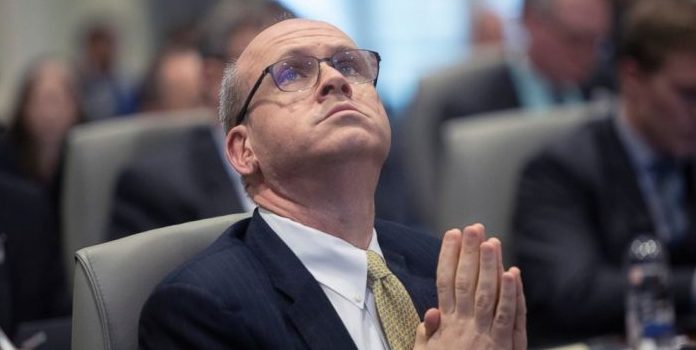(Ben Weingarten, RealClearInvestigations) Election Day marks not just the end of numerous campaigns but the culmination of—or, undoubtedly in important cases, the continuation of—knock-down, drag-out battles waged in state houses and courthouses.
Campaign lawyers are left to quibble with high-priced legal operatives funded by dark-money activist groups over which votes should count, who should do the counting, and whether some candidates were even eligible to receive votes in the first place.
Lawmakers pushed over 1,000 election-related bills this year, with largely Democrat-led states passing laws easing voting rules and regulations, and largely Republican-led states passing laws strengthening them.
Partisans fought and are poised to continue fighting over mail-in voting, treatment of mismarked absentee ballots and partisan poll watchers.
The rise of such “lawfare”—the well-financed and elaborate legal and legislative strategies advanced by both the Left and the Right to change electoral rules and practices to tilt the playing field to their advantage—is a hidden but defining force shaping American democracy.
Mainstream media outlets have emphasized the GOP’s contribution to that deluge as Republican National Committee Chairwoman Ronna McDaniel has pledged to make this the party’s “most litigious” cycle ever in response to having been broadsided in the previous election cycle.
The RNC and like-minded entities have filed more than 70 lawsuits, overwhelmingly driving the more than 100 complaints brought during the 2022 cycle.
They have prevailed or achieved partial victories in cases in Arizona and Nevada that sought party parity among poll workers; in Michigan, overturning guidance that would have illegally restricted poll challengers, and cleaning voter rolls; and in Delaware, striking down an expansive vote-by-mail and same-day voter registration law.
But Republicans say their legal onslaught is a response not only to what they believed were shortcomings in the legal maneuverings that followed the 2020 presidential election (courts rejected dozens of Trump-related challenges), but also to the Democrats’ own robust litigation strategy during that race.
Democratic Party organizations, campaigns, and interest groups launched 120 election-related lawsuits during the 2020 election, compared to just 40 brought by Republicans—many of which came in response to Democrats’ legal maneuverings.
To some conservatives, this willingness to use the courts to combat their adversaries was long overdue. “Finally,” Republican attorney Cleta Mitchell told RealClearInvestigations, the RNC and others are being “proactive, before the election, suing to enforce state election laws.”
Democrats’ ‘Best Election-Stealing Lawyer’
Their opponents, including top Democrat lawyer Marc Elias, have noted this trend of increased Republican lawfare with alarm.
In an August post on Democracy Docket, an Elias-founded left-wing media platform, the lawyer declared that a “constellation of well-funded, right-wing groups,” ranging from “mere vote suppressors to full-on election deniers,” was working to “make voting more difficult and free and fair elections less likely.”
Elias, once labeled Democrats’ “best Election-stealing lawyer” following the 2018 midterms is no disinterested observer.
Having left his former law firm, Perkins Coie, shortly after the Durham investigation’s indictment of his former colleague Michael Sussmann over the 2016 Russia-collusion hoax, Elias now heads the eponymous self-described “largest law firm focused on representing the Democratic Party” and others “committed to securing a progressive future.”
He led the party’s 2020 legal strategy, spearheading many of its suits, and the successful response to Trump’s post-election challenges.
This cycle, he and his allies have challenged virtually every major piece of election integrity-focused legislation in Republican-led states such as Arizona, Florida and Texas.
Jason Snead, executive director of the Honest Elections Project, said Democrats still have a distinct advantage in lawfare because of “a very comprehensive network of folks…[who] work on election-related litigation,” that includes “the ACLU, the NAACP, the League of Women Voters, Common Cause, Fair Fight.”
Snead said this allows them to file numerous suits with precision and alacrity, and with such ease that it is “like ordering a pizza.”
Consider Arabella Advisors, the philanthropic consultancy described as the “mothership” of a Democrat “dark money” push that has eclipsed that of the right.
As the Capital Research Center’s Hayden Ludwig wrote in response to a recent Wall Street Journal letter from Arabella’s president downplaying the group’s clout, its network of nonprofits received over $1.7 billion in 2020 alone—more than the highly scrutinized one-time $1.65 billion donation to conservative legal and political activist Leonard Leo’s Marble Freedom Trust nonprofit. Arabella’s network reportedly funds Elias’s efforts.
As for Elias’ claim that Republicans are “election deniers” who “spread disinformation” to help overturn election results, he’s no stranger to politics’ dark arts himself.
Elias famously served as Hillary Clinton’s 2016 campaign lawyer, where he helped facilitate the creation of the dubious Steele dossier, core to the Russiagate scandal, and the Democrats’ sustained campaign to characterize Donald Trump’s election as illegitimate.
When asked how he would respond to those who might see hypocrisy in his critique of Republicans, Elias declined comment.
Disbarring Legal Foes
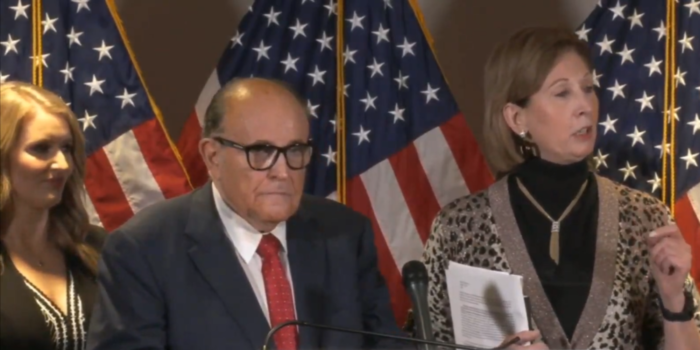
To the extent Democrats hold a lawfare advantage, they have also sought to widen it by taking their counterparts off the field.
The 65 Project—so numbered for the 65 unsuccessful Trump lawsuits filed after the 2020 presidential election—aims to do just that.
As Axios reported in March at launch, the 65 Project would “spend millions…to expose and try to disbar more than 100 lawyers who worked on Donald Trump’s post-election lawsuit.”
The aim here, Axios noted, is nothing less than deterring conservative legal talent from representing Republicans in any future GOP efforts to challenge election procedures.
By the group’s account, this strategy is proving fruitful.
In October it tweeted that it had filed 66 complaints “against Trump’s Big Lie Lawyers … our efforts have been validated by bar associations and Trump’s own struggle to find lawyers willing to take up his baseless causes.”
We have now filed 66 complaints against Trump's Big Lie Lawyers, and our efforts have been validated by bar associations and Trump’s own struggle to find lawyers willing to take up his baseless causes. /3
— The 65 Project (@The65Project) October 20, 2022
Disqualifying Political Foes
Democrats have embraced another lawfare tactic aimed at picking off not only lawyers, but candidates as well.
In January, Elias raised the idea of disqualifying Republican representatives from the November midterms pursuant to Section 3 of the 14th Amendment.
Under the post-Civil War provision, state legislators and members of Congress who “engaged in insurrection or rebellion against the [United States]” could be prohibited from serving in those positions going forward.
By classifying the Jan. 6 Capitol breach as an “insurrection,” Elias theorized, associated lawmakers could be booted from ballots.
Left-leaning organizations proceeded to file legal challenges seeking to disqualify nearly a dozen Republican federal and state representatives. Those challenges failed.
One local judge in New Mexico, however, did remove a county commissioner from office—on insurrection grounds, a first—for his role in the Capitol breach, where he was convicted of trespassing.
‘In the Guts of the Nation’s Election Machinery’
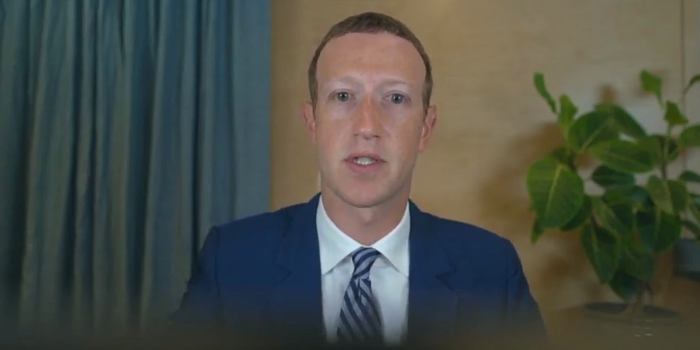
Another emerging battleground between the parties targets election administration and oversight.
A recent New York magazine profile of Cleta Mitchell focused on her efforts to train more than 20,000 people to monitor elections—part of a broader conservative effort to engage in these areas after decades of being legally prohibited from doing so.
Mitchell, the magazine reported, is “harnessing the energy of the angry Trumpian faithful to embed themselves in the guts of the nation’s election machinery, believing the apparatus of poll workers and election observers … is biased against conservatives.”
To Mitchell, who chairs the Conservative Partnership Institute’s Election Integrity Network, and like-minded election experts and researchers, Democrats are already deeply embedded in those guts.
They point to the “Zuckerbucks” operation, which funneled some $400 million in private funding from Meta CEO Mark Zuckerberg and wife Priscilla Chan through two nonprofits into election offices across the country during the 2020 election—apparently with partisan strings attached.
Zuckerbucks flowed into 2,500 departments across 47 states and Washington, D.C., with requirements that officials work with partner organizations—presenting themselves as nonpartisan but in fact generally left-leaning—to massively expand mail-in voting, assist in ballot curing and voter outreach, and, in Green Bay, Wisconsin, to directly manage much of the election process.
As Mark Hemingway reported for RCI, there is evidence the funds were distributed on a partisan basis.
Of the “50 largest grants in terms of per capita spending, the average partisan lean in favor of Democrat Joe Biden over Republican Donald Trump was 33 points—meaning the aid could be expected to stimulate more Democratic votes,” Hemingway reported.
Whether they could have swung states from Trump to Biden in 2020 remains an open debate.
For their part, 24 states and 12 counties barred private funding of election offices.
Yet a similar apparatus remains. One of the two nonprofits used to distribute Zuckerbucks, the Center for Tech and Civic Life, has banded together with other organizations connected to major Democrat donors, including those associated with Arabella Advisors, to create the Alliance for Election Excellence.
Backed with $80 million, it claims to be a “nonpartisan collaborative … bringing together election officials, designers, technologists, and other experts to help [local] election departments improve [their] operations …”
Although that money is not coming from the Meta CEO, Jason Snead says the Alliance is tantamount to Zuckerbucks 2.0. Now, aligned nonprofits “are reaching into offices and giving them [the offices] inputs into how they ought to be running” without lavishing funds on them.
Those inputs might include providing guidance on administering elections, building election-related websites, pressing for mail-in voting or even whipping support within election offices for Democrat-favored election laws.
Snead said the Alliance has been working to organize local election officials to lobby Congress for billions in additional election funding.
Hayden Ludwig said the Alliance aims to “centralize control over elections in Washington, D.C., using ‘redesigned’ ballots, a flood of taxpayer funds, and a permanent expansion of the vote-by-mail bureaucracy.”
The Alliance, one of a coterie of groups in the election training and assistance space funded by, and funding, progressive-tied groups, did not respond to a request for comment.
“The left has spent the last decade investing billions … of dollars in building an election infrastructure,” Mitchell said.
She cited the work of progressive billionaire and philanthropist Pierre Omidyar via his Democracy Fund as paradigmatic of the way in which aligned mega-donors “fund the creation” of numerous “entities that do business with and provide ‘expertise’ and ‘nonpartisan assistance’ to election offices and administrators.”
Their success can be seen in Time magazine’s exposé on the “conspiracy to save the 2020 election.”
The conspirators—many deeply tied into the Democrat Party – in working to “fortify” the election, as journalist Molly Ball put it, “recruited armies of poll workers and got millions of people to vote by mail for the first time.”
RealClearInvestigations sought comment from many of the referenced groups in the Time piece about whether they had activated a similar apparatus in 2022. Its queries went unanswered.
At least one group mentioned in that effort, Power the Polls, was reportedly looking to re-engage 700,000 plus workers to again work the midterms.
Meanwhile, the leader of the second nonprofit that distributed Zuckerbucks in 2020—the Center for Election Innovation & Research—is now steeling for battle against those skeptical of the idea that election administration as it has been executed is impartial.
David Becker announced another entity of his will be running public relations pro bono for election officials across the country. The goal? To create an “effective truthful narrative” to combat the “disinformation attacks” to which election officials claim to have been subjected, according to a press release.
‘Get Out the Vote,’ Tax-Funded and Partisan?
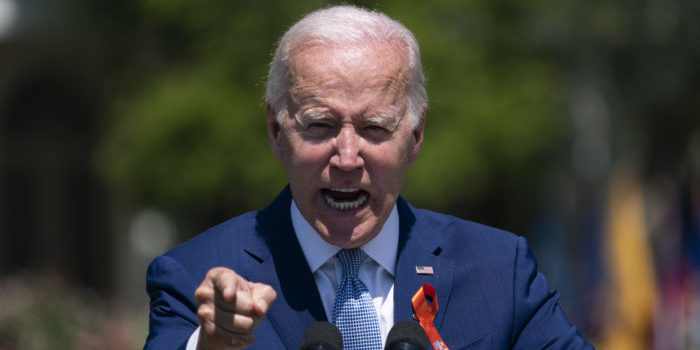
Republicans also face a new initiative that some consider to be a de-facto Democrat-led get-out-the-vote effort—backed with the full force of the Biden-led federal bureaucracy.
In March 2021, the president issued an executive order “Promoting Access to Voting.” The order called for every executive agency to devise a plan to increase voter registration and participation.
The administration framed the directive as a remedy to the presumed problem that “many Americans, especially people of color, confront significant obstacles to exercising … [the] fundamental right” to vote.
Critics cried foul and called it an unconstitutional power grab—an attempt to usurp state and local power over elections and federalize them.
What’s more, as the leaders of the watchdog Foundation for Government Accountability argued, such a power grab would necessarily have a political taintg:
“Promoting voter registration and participation—i.e., mobilizing voters—is an inherently political act for a partisan president,” they wrote. “The resulting efforts can be directed at groups expected to vote for the president’s party and may take the form of pressure to support the party or its policies.”
Language within the order about non-governmental groups it might empower—and, later, revelations about its related roots—fueled these concerns.
The order called on agency heads to consider “soliciting and facilitating approved, nonpartisan third-party organizations … to provide voter registration services on agency premises.”
The administration was silent on which organizations constituted “approved” ones, leading House Republicans to send a letter to Shalanda Young, then-acting director of the Office of Management and Budget, demanding details on the approval process.
Subsequent reporting indicated the executive order appeared to be cribbed from a white paper produced by progressive dark-money group Demos.
Two ex-Demos executives—one of whom helped write the paper—were well-placed in the administration to push for the order. Demos applauded the order upon its passage, and a year later it revealed it had worked extensively with agencies to develop their plans.
The Biden administration has hardly allayed concerns over the order’s seeming political taint by obfuscating over it. Both Republican members of Congress and the Foundation for Government Accountability have found themselves stonewalled in seeking details about the order. The White House did not respond to RCI’s related inquiries.
But its impact can be seen in measures agencies from the departments of Labor, Housing and Urban Development, and Agriculture have undertaken pursuant to it, seeking to drive voter registration via job training centers, public housing authorities and child nutrition programs.
Recent evidence emerged that the Biden administration was using federally funded job training and food stamp programs to register new voters “in Democrat-skewing demographic groups such as young adults and Native Americans,” according to Just the News.
Stewart Whitson, legal director for the Foundation for Government Accountability, sees a conflict at the core of these efforts: “The executive order targets people receiving government benefits who might think their benefits depend on one party in power.”
But J. Christian Adams, the head of the conservative Public Interest Legal Foundation, which has successfully litigated on several election-related matters in 2022, issued a warning to his like-minded allies.
To Adams, the order is “not much different than what the Bush or Obama administration did. “We are on the wrong side of things when we are against voter registration,” he told RCI.
Future Elections at Stake
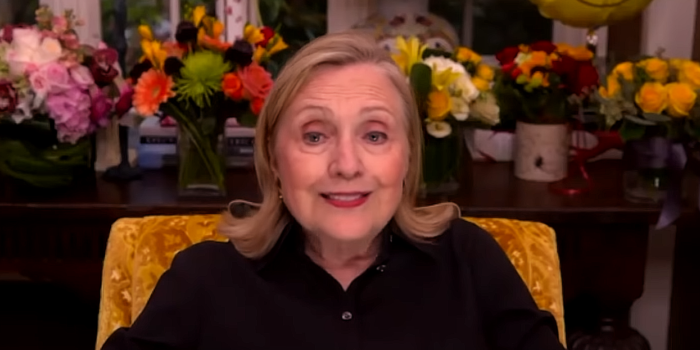
The 2022 midterm elections may reveal not only the extent to which Democrat and Republican efforts to change the rules and practices of the election game impacted their outcomes, but the kind of playing field voters prefer.
Proxies may be found not only in legislative races, but hotly contested and unusually well-funded elections for secretaries of state; contests for lower offices overseeing and administering elections; and election law-related ballot initiatives like Michigan’s Proposal 2.
The battle will likely escalate further in the weeks ahead.
On Dec. 7, the Supreme Court will hear oral arguments in the case of Moore v. Harper. It will consider whether a state’s judicial branch can nullify election rules and replace them with their own under its constitutional power to ensure “fair” or “free” elections. The petitioners believe the court may not usurp such powers.
Elias’s Democracy Docket casts this so-called “independent legislature theory” as “fringe” and “dangerous.”
Others on the left, including his former boss, are even more hyperbolic in speculating about the ramifications of an adverse ruling.
HILLARY CLINTON: “Right wing extremists already have a plan to literally steal the next presidential election.”
— Breaking911 (@Breaking911) October 25, 2022
“The right-wing controlled Supreme Court may be poised to rule on giving state legislatures … the power to overturn presidential elections,” Hillary Clinton recently warned in a video produced for the progressive group Indivisible.
Seeming to pre-question the legitimacy of the 2024 contest, she declared that should the petitioners prevail in Moore v. Harper, “right-wing extremists” would be positioned “to literally steal the next presidential election.”
Before the final votes had been cast in 2022, the war over the rules for 2024 was already on.

